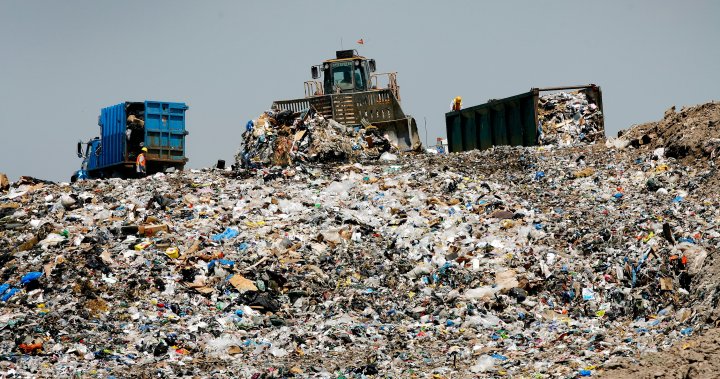Toronto’s municipal government has issued a warning regarding the Green Lane Landfill, which is rapidly approaching its capacity to handle the overwhelming amount of waste generated by the city’s expanding population. The landfill, managed by the city since 2007, is projected to reach its capacity by the year 2035, necessitating an immediate reevaluation and update of the city’s long-term waste management strategy. In light of this impending crisis, city staff are actively seeking the public’s input through a series of consultations designed to inform future waste disposal plans. The urgency of the situation is underscored by the fact that Toronto managed nearly 830,000 tonnes of waste in the previous year alone, emphasizing the need for proactive measures to ensure sustainable waste management solutions.
The city’s last comprehensive strategy for waste management was formulated in 2016, at which point officials were already cognizant of the landfill’s constrained lifespan. This lifespan is contingent upon several factors, notably the volume of waste the city generates. As Toronto’s population continues to rise and waste production remains steady, the Green Lane Landfill is becoming less sustainable as a solution for waste disposal. In response to the situation, city staff have implemented some immediate measures to prolong the landfill’s operational life, such as renegotiating contracts related to waste disposal and compaction requirements. While these short-term strategies have been beneficial, staff caution that they are not sufficient to address the long-term needs of the city.
A report released by city staff indicates the pressing need to secure long-term waste disposal capacity, given that the only operational landfill in the city is facing limitations on its lifespan. The situation is compounded by the fact that available landfill spaces in Ontario are dwindling. Recent provincial studies have suggested that by the year 2034, Ontario could potentially run out of landfill capacity altogether. This scarcity of options is causing municipalities to increasingly rely on private landfills, which comprised over half of active landfills as of 2020. Moreover, the province’s waste management landscape is under additional strain due to the fact that a substantial portion of Ontario’s waste—approximately one-third— is exported to other states, notably Michigan and New York.
The ability to locate new landfills in Ontario is hindered by a combination of regulatory challenges and limited land availability. New regulations implemented by the provincial government in 2020 have introduced stringent measures that require any proposed landfill site to receive approval not only from the host municipality but also from nearby municipalities within a 3.5-kilometer radius. This has effectively given those local jurisdictions the power to veto any new landfill developments, adding another layer of complexity to the already challenging landscape of waste disposal. The city has sought clarification from the provincial government regarding these regulations but has yet to receive a response, further exacerbating concerns regarding future waste management infrastructure.
As the need for long-term solutions intensifies, Toronto is preparing to engage with its residents to gather feedback on new waste management strategies through public consultations. The initiative will commence with an online survey, available until December 20, along with public drop-in events and virtual meetings to gather diverse perspectives and opinions. This phase of consultations is designed to establish a vision and guiding principles for the city’s waste management system moving forward. It is crucial that the insights gained from community members are integrated into the new waste management strategy to ensure that it addresses the needs and preferences of the public in sustainable ways.
Looking ahead, as the city endeavors to navigate the challenging waste management landscape, it is clear that Toronto faces a critical juncture in how it handles waste disposal. With landfill capacity dwindling both locally and regionally, and increasing competition for space and resources, the city must act decisively to secure sustainable solutions. By actively involving the public in the decision-making process, Toronto hopes to create a waste management strategy that can adapt to future growth and environmental demands, while also being mindful of the logistical and regulatory hurdles that lie ahead. The outreach through public consultations will play a vital role in shaping the city’s approach to waste management, ensuring that it meets the challenges of the future effectively.

